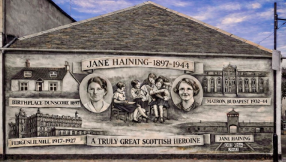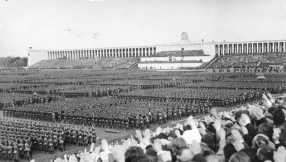Archbishop warns of broken bonds and abused trust
Preaching the Christmas sermon at Canterbury Cathedral this morning, Dr Rowan Williams said the need to learn lessons had been made all the more important by the riots and banking crisis.
“Bonds have been broken, trust abused and lost,” the Archbishop said.
“Whether it is an urban rioter mindlessly burning down a small shop that serves his community, or a speculator turning his back on the question of who bears the ultimate cost for his acquisitive adventures in the virtual reality of today’s financial world, the picture is of atoms spinning apart in the dark.”
In contrast to the fragmenting society, the Archbishop spoke of the Book of Common Prayer as a book that “defined what a whole society said to God together”.
“If the question ‘where are you?’ or ‘who are you?’ were being asked, not only individual citizens of Britain but the whole social order could have replied, Here we are, speaking together – to recognise our failures and our ideals, to recognise that the story of the Bible is our story, to ask together for strength to live and act together in faithfulness, fairness, pity and generosity.”
Although much of the book’s language may feel “dated” today, he said it remained a “treasury” of words and phrases for people to say “where and who we are before God”.
“A treasury of words for God – but also a source of vision for an entire society: ‘Give us grace seriously to lay heart the great dangers we are in by our unhappy divisions’; ‘If ye shall perceive your offences to be such as are not only against God but also against your neighbours; then ye shall reconcile yourselves unto them; being ready to make restitution.’”
He went on to say that the language of the Book of Common Prayer offered society the means of “binding together our obligations to God and to one another, in a dense interweaving of love and duty joyfully performed”.
“We’re much the poorer for forgetting it and pushing it to the margins as much as we often do in the Church,” he said.













